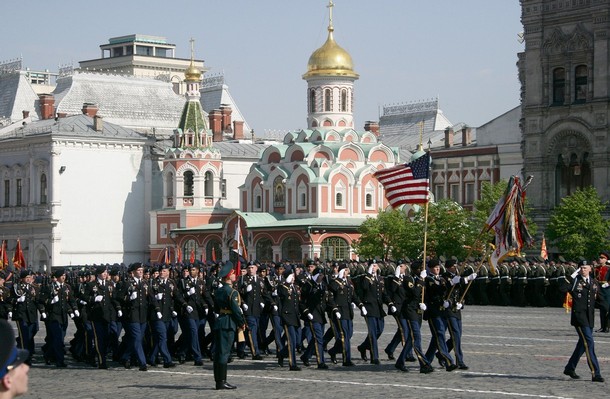
From Eastern Approaches, the Economist: An interesting article by Tomáš Valášek at the Centre for European Reform, a London thinktank, looks at the pros and cons of Russia joining NATO, or at least changing its relationship with the alliance. He was one of a bunch of western security-policy specialists invited by their Russian counterparts to discuss the issue. As he notes, the atmospherics have clearly changed in recent months. But what about the reality? Clearly Russia would have to change a lot to meet the demands of full membership. But the Russians have something different in mind: a bargain in which the alliance would stop expanding eastward or arming countries that Russia does not like (presumably Georgia). In return Russia would help on missile defence, Afghanistan and other issues. The Russians call this ‘integration’ or ‘organisational unity’, rather than membership.
It is quite hard to see that working: unless NATO is an alliance of values, it is unclear why soldiers from one country would risk their lives to defend another. Joining NATO means quite deep internal changes. Russia would have to reach, say, Turkish standards of political contestability and the rule of law in order for discussion of eventual membership to make sense.
Another suggestion examined by Mr Valášek is that NATO and Russia should ‘demilitarise’ their relationship.
Moscow would stop holding exercises that simulate a war with NATO, like the ‘Zapad’ exercise last year, in which 12,500 Russian and Belorusian troops repelled a fictitious attack from NATO. Russia would also change its strategic documents to make clear that NATO is not a ‘threat’ or ‘danger’. NATO would respond in kind, with no exercises and no new bases near Russia’s borders.
That has problems too. It would require some changes in Russia’s posture and doctrine. And the new NATO member states, who already worry that the alliance neglects territorial defence, would be twitchy. What they want is a clearer NATO commitment to their defence, and in particular a new NATO planning centre to keep an eye on future crises, including those involving Russia.
Mr Valášek argues that this kind of reassurance, far from blocking improved relations with Russia, is the essential condition for a rapprochement, which could eventually mean demilitarisation or, in the long run, integration. (photo: Getty)
Image: getty%207%2013%2010%20US%20troops%20march%20in%20parade%20in%20Red%20Square.jpg
